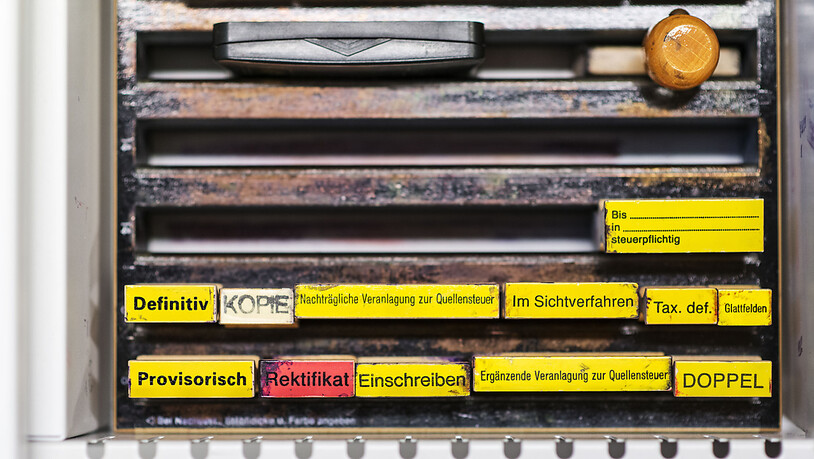With the introduction of global minimum taxes, there are now signs of a shift in tax competition toward subsidy competition, according to a study by audit and advisory firm KPMG.
Corporate income tax rates in Swiss cantons are currently 14.60 percent on average after 14.68 percent a year earlier, KPMG said in its study “Clarity on Swiss Taxes” published Thursday. From 2022 to 2023, there were only small, isolated cuts in the tax rate, after many rates had been cut in previous years due to the TRAF corporate tax reform.
Lower Aargau and Basilland
The largest reductions in corporate income tax rates were in the cantons of Aargau (-1.16 percentage points to 16.26%) and Basel-Landschaft (-2.07 percentage points to 15.09%). In turn, the canton of Neuchâtel raised the profit tax rate from 2022 to 2023 (+1.32 percentage points to 14.89%).
The lowest corporate tax rates in Switzerland can still be found in the central Swiss cantons as well as in Glarus and Appenzell-Inruden: the low-tax cantons Zug (11.80%), Nidwalden (11.97%) and Lucerne (12.15%) lead the ranking. The cantons of Zurich (19.65%) and Bern (21.04%) came in at the bottom.
Switzerland remains tax-friendly
In international comparison, Switzerland is still a low corporate tax country. Probably the most significant competitor in Europe is Ireland with a dividend tax rate of 12.5 percent. Lower corporate tax rates can be found in Hungary (9.0%) and Bulgaria (10.0%), while the Channel Island of Guernsey has no corporate income tax at all.
KPMG also collected the maximum tax rates for individuals in the various cantons. On average in Switzerland, the rate for high-income taxpayers is practically unchanged at 33.45 percent. The cantons of Zug (highest tax rate 22.06%) and Appenzell-Inruden (23.82%) remain the most attractive to wealthy taxpayers, while Geneva (44.74%) and Basel-Landschaft (42.17%) remain the least attractive.
Support competition
The introduction of a global minimum tax of 15 percent in Switzerland, which voters will vote on in mid-June, will only affect large companies with annual sales of more than 750 million euros. In order to maintain the site’s attractiveness, cantons will have to introduce more site-specific measures or promote existing ones, the experts at KPMG are convinced. According to the proposal, 75 percent of the income from the supplementary tax should remain in the cantons.
The trend towards shifting from tax competition to subsidy competition can also be observed at the international level. The study refers to state assistance to promote sustainability in the European Union and the United States of America, which is also linked to investments in production in the respective countries. The consultancy said the race for subsidies is already underway and the introduction of similar support measures should be discussed now at the latest.

“Tv expert. Hardcore creator. Extreme music fan. Lifelong twitter geek. Certified travel enthusiast. Baconaholic. Pop culture nerd. Reader. Freelance student.”






More Stories
D-AIXT: Lufthansa's first Airbus A350 with Allegris cabin has to rest after suffering hail damage
KTM: Entry into the Supersport Next Generation/Supersport World Championship
Salary dispute: Conflict with cockpit crews costs Aer Lingus Airbus A321 XLR title